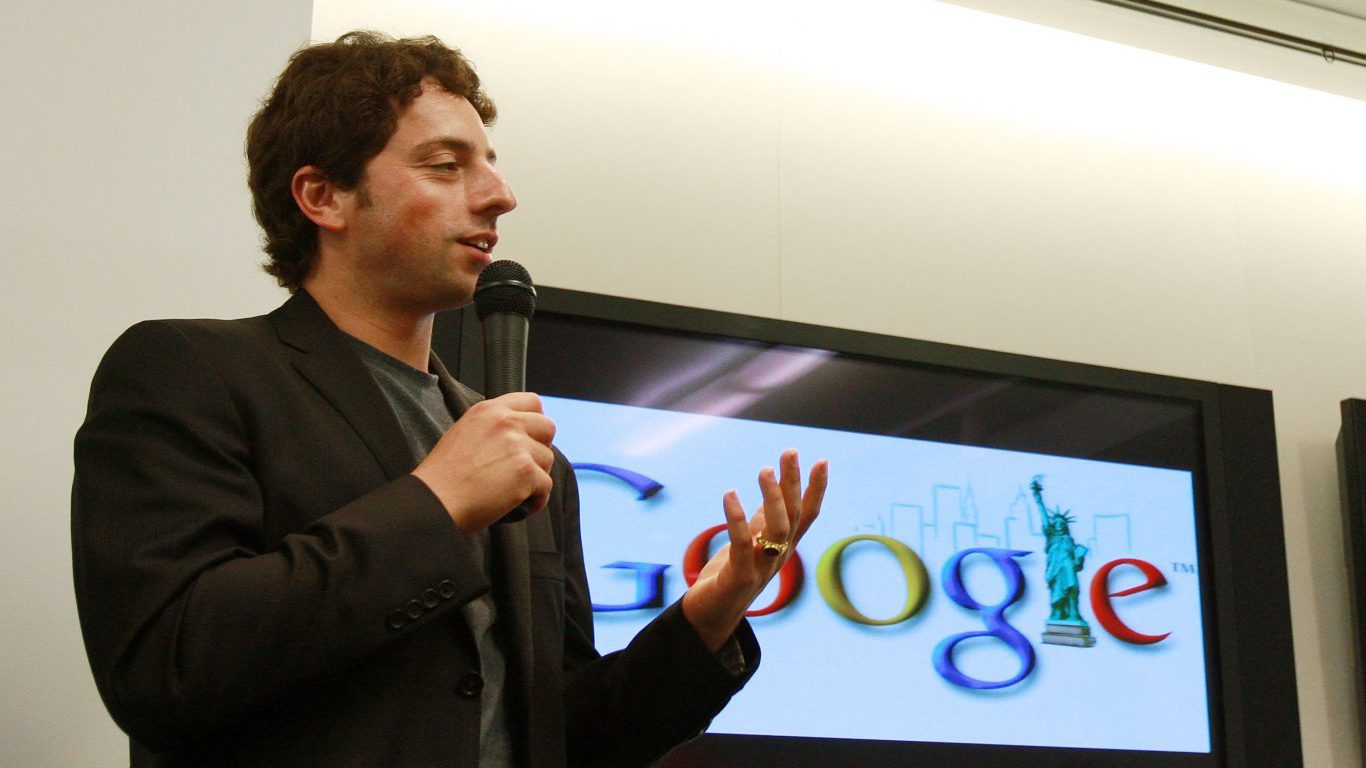Technology
Why Wall Street Is Discounting the Larry and Sergey Exit of Google and Alphabet

Published:
Last Updated:

At some point, being a multi-billionaire and running one of the top companies in the world takes its toll. Throw in the political scheme that is targeting legitimate wealth, an environment in which many companies are being investigated over antitrust, and a world where other nations want their piece of your company’s earnings. Let’s go ahead and throw in a political climate in which management was publicly against the current regime. This is now the story of Alphabet Inc. (NASDAQ: GOOGL).
Google co-founders Larry Page and Sergey Brin have announced that they are both stepping down as executives of Google and Alphabet. CEO Sundar Pichai will now firmly be in control of both companies, and Page and Brin will remain on the board of directors and continue to hold large stakes in the company. As far as the logistics here, Pichai has been CEO of Google since 2015, and he will now be the official head of Alphabet.
News of the founders pulling their ripcords when the market is at all-time highs is not unprecedented, and amazingly it may not even matter to investors. These two changed roles handily when Google became Alphabet and Google, and that was long after Eric Schmidt had stepped back as the former “adult supervision” in the prior decade.
The combined companies now have to deal with state and federal regulators looking deep into various practices, and the U.S. Department of Justice is looking into whether it feels that privacy and market dominance have become too great at Google. The company also faces potentially large fines in Europe for its market dominance, and China remains a big unknown for Google’s future.
According to many news reports, Page and Brin already sort of had their feet out the door. On top of not standing in for employee Q&A sessions, Page was absent from a recent meeting of shareholders — after congressional officials left an empty chair in his “honor” during a hearing regarding Russia’s use of internet services to influence U.S. elections.
Investors already have grown accustomed to Pichai, and he is the one who went to Washington, D.C., to testify to Congress that its search services are not biased against conservatives. He has been leading the shareholder meetings and earnings calls and has moved weekly in-house meetings to monthly ones. Pichai now has a 15-year tenure at Google and has intimate knowledge of all the day-to-day operations that Google is most widely known for.
As for the future, Google already dominates in search, it has grown into a massive email host, its Android has become the number-one operating system for smartphones, and the company has hosts of other products and services that are used by hundreds of millions of people (or billions) every day. Pichai also has told employees that his new dual role will not come with a back-step, nor will it come with less focus from Google.
As far as Alphabet’s longshot projects, it remains to be seen how much attention and focus will be given to self-driving cars (Waymo), drones, electricity and alternative energy, life sciences, smart glasses and wearable tech, artificial intelligence and machine learning, and so on. Any one of those projects could become a massive source of revenue and earnings in the years ahead, but they have continued to be a drag against operating profits and the potential payoffs might be years away, if they even ever come to fruition.
A blog post from Page and Brin said:
Today, in 2019, if the company was a person, it would be a young adult of 21 and it would be time to leave the roost. While it has been a tremendous privilege to be deeply involved in the day-to-day management of the company for so long, we believe it’s time to assume the role of proud parents—offering advice and love, but not daily nagging!
Page and Brin still hold and will continue to hold the majority of Alphabet’s voting shares. That tally comes to roughly 26.1% for Page and about 25.2% for Brin in the controversial super-voting shares. The two have a combined net worth of nearly $110 billion, according to Forbes data tracking the world’s wealthiest tycoons.
Alphabet shares were last seen trading up 2.1% at $1,322.20 on a day that the S&P 500, Dow Jones industrials and Nasdaq were all up roughly 0.7%. It’s not that Wall Street will cheer their exit here, it’s that the move already was somewhat factored in. And who knows, if things get tight or if a crisis emerges, one or both could easily step back in if needed.
Alphabet shares were last seen up close to 24% so far in 2019, what would be a solid year had the Nasdaq not risen more than 30%. Despite not having paid a dividend, the GOOG/GOOGL share performance has been staggering since its $85 IPO price in 2004 was long before the split into two companies.
In the realm of corporate governance, there is a huge influence in the so-called ESG (environmental, social, governance) theme that has come to dominate ESG-focused investing. Alphabet remains a top holding of nearly every ESG-themed mutual fund and exchange-traded fund. That is unlikely to change.
Thank you for reading! Have some feedback for us?
Contact the 24/7 Wall St. editorial team.